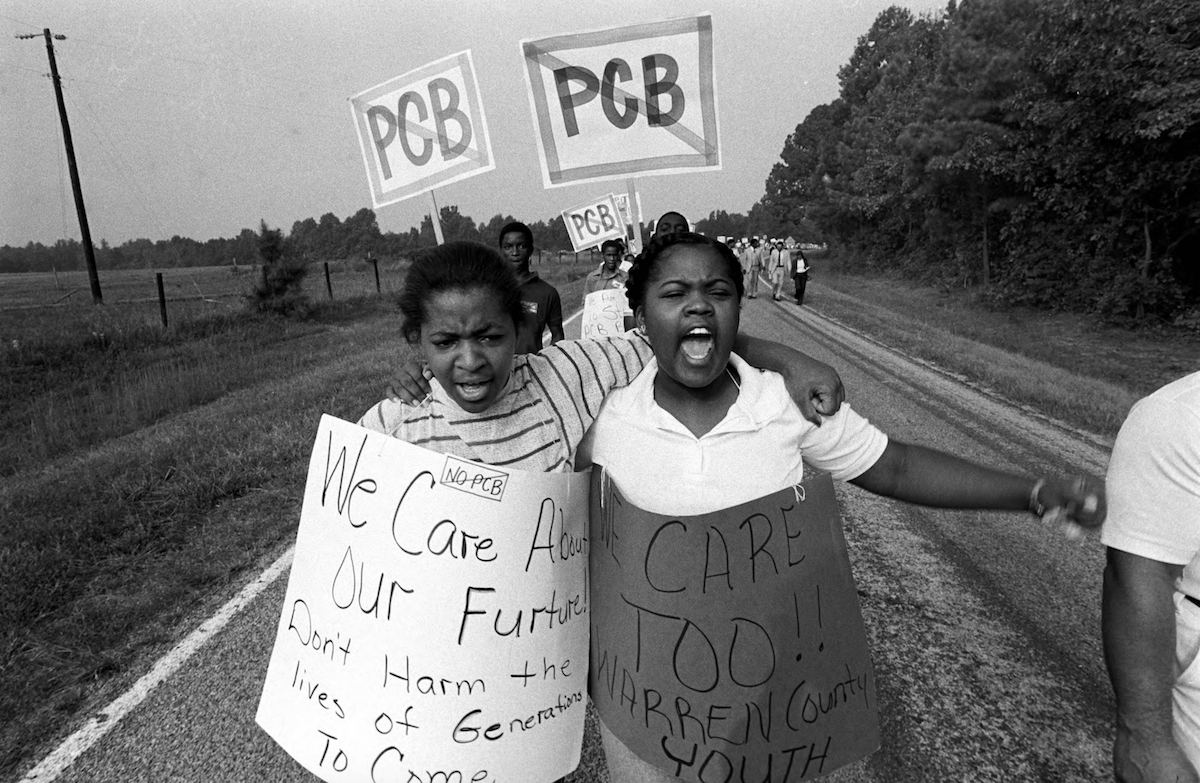
Led By:
- Samuel K. Roberts, Associate Professor of History, Sociomedical Sciences, and African American Studies
- Valentina Parisi, Research Assistant
Photograph, in the Jerome Friar Photographic Collection and Related Materials (P0090), North Carolina Collection Photographic Archives, The Wilson Library, University of North Carolina at Chapel Hill
The Research Cluster in the Historical Study of Race, Inequality, and Health supports several principal activities:
The Research Cluster in the Historical Study of Race, Inequality, and Health is the academic institutional partner for the Legal Action Center’s No Health=No Justice campaign. No Health=No Justice (NHNJ) is a multistate advocacy and organizing campaign to ground decarceration efforts in ensuring that people are no longer prosecuted and criminalized for their health needs, but are instead provided with real access to care. The campaign will highlight the intersection of historic and ongoing racism in the health care and criminal justice systems, directly linking health inequities to the over-criminalization and disproportionate incarceration of Black and Latinx individuals. Together, these forms of discrimination continue to make life difficult and disempowering for most people of color and profoundly affect their communities. For too many, they are also deadly. Justice means making sure people and communities are no longer criminalized for health-related conditions.
With the Legal Action Center, the Research Cluster in the Historical Study of Race, Inequality, and Health staged a one-day symposium on these issues at Columbia University.
The Columbia University Press series in Race, Inequality, and Health (CUP-RIH) offers titles which regard race as a structuring force in social life, a basis for discrimination and structural inequality, a social reality, and a foundation for reactionary or affirmative group politics. As such, the RIH series includes scholars working - often at disciplinary intersections - in history, the social sciences, the biological sciences, and public health. Book projects of interest to the editors (Samuel K. Roberts and Michael Yudell) include and are not limited to:
- The history of violence as a health issue
- The relationship between structural racism and health
- How science and ideology shape conceptions of race
- Biological citizenship and social politics
- Gender and sexuality
- Social politics and contemporary or historical health movements
- Community psychiatry and mental health
- Race, health and the carceral state
- Political economy and resource scarcity
As part of both its research-promotion agenda, the Cluster will invite an author contracted with CUP-RIH to visit Columbia for a manuscript development workshop with two invited scholars who will read the work and offer extended commentary. In some cases, the scholar’s visit will also feature a public lecture.
The Research Cluster in the Historical Study of Race, Inequality, and Health supports ongoing research in “Harm Reduction in Black: Race, Recovery, and Social Justice, 1980-2020.” Here the Cluster will build a program of research and public engagement around the (provisionally titled) theme of “Harm Reduction in Black: Race, Recovery, and the Movement for Black Lives.” It will feature the following activities:
- Initiation of an online repository of historical documents, images, oral histories, recordings, and interpretive essays pertaining to race, drug policy, addiction recovery, and harm reduction. Material in the online portal will pertain to various topics, including health activism, addiction recovery and public health, needle exchange/provision and activism, bloodborne disease (HIV/AIDS, HCV) prevention efforts, outreach to and advocacy for those engaged in sex work, and drug use decriminalization and Black politics.
- Hosting regular private meetings of the Black Harm Reduction Working Group (of which Roberts is a founding member).
- A day-long meeting/symposium on research in history, harm reduction, and racial justice, coordinated by the Cluster and CSS in partnership with the Black Harm Reduction Working Group and others.
The Cluster supports the continuation of PDIS: People Doing Interesting Stuff podcast, an original podcast interview show featuring people who work in harm reduction, public health, and social justice. PDIS was created and is hosted by Samuel K. Roberts.
Bearing Witness: The Covid-19 & Inequality History Documentation Project is an effort to document and interpret the events associated with the novel coronavirus epidemic in the United States as it pertains especially to racialized minorities and issues of structural inequality and racism. The Cluster is actively constructing a timeline of the US epidemic and collecting relevant sources. The interactive timeline presents principally four types of events: data events, political events, policy events, and scientific events.
In addition to the timeline, the website also includes a growing, curated bibliography of primary and secondary sources to contextualize the current moment. These sources include reports, academic and non-academic studies, hearings, news articles, opinion pieces, various audiovisual sources, and others. The Cluster anticipates that the Bearing Witness project will have several important applications, including assisting historians and others to think about Covid-19 as an unfolding drama and aiding high school and university instructors to develop interactive teaching units related to coronavirus, health disparities, mass incarceration, and social determinants of health.
The timeline is generated using the TimelineJS application developed by the Northwestern University Knight Lab and the website is created in collaboration with Columbia University Digital Scholarship Librarian Alex Gil.
Racial inequality. Income inequality. Structural inequality. Health inequality. The novel coronavirus crisis has exposed issues of inequity and injustice that continue to shape local and nationwide responses. Over nine episodes, Samuel K. Roberts, Mabel O. Wilson, and their guests discuss the impacts of COVID-19 on Black life in New York City and beyond.
Black Lives: In the Era of COVID-19 can be streamed via Apple, Radio Public, and Spotify.
